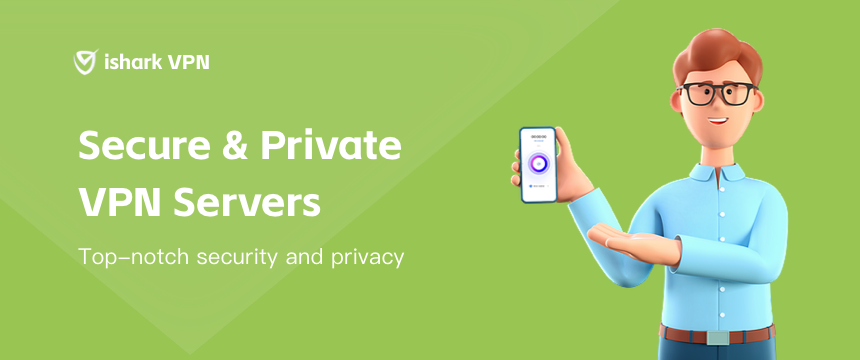The Impact and Role of VPN in Network Security
ishark blog article
With the widespread use of the internet and the advent of the digital age, network security has become increasingly prominent. Threats such as hacker attacks, personal data breaches, and privacy infringements are on the rise.
To protect the security of user data and privacy, Virtual Private Networks (VPN) have become a popular network security tool.
This article analyzes how VPN strengthens network security, protects user data from hacker attacks and surveillance, and explores how VPN encrypts data transmission to safeguard user privacy and anonymity.

VPN Enhancing Network Security:
In today's digital age, network security issues are increasingly prominent. Hacker attacks, personal data breaches, and privacy infringements pose serious risks to individuals and organizations. VPN strengthens network security in the following ways:
Data Encryption: VPN utilizes advanced encryption techniques to encrypt user data transmission, making it inaccessible to hackers and preventing unauthorized alteration. Through encryption, VPN effectively safeguards user data privacy.
Prevention of Network Eavesdropping: By establishing secure tunnel connections, VPN ensures that user data transmission occurs within private channels, mitigating the risk of data eavesdropping by hackers. This encrypted communication channel enhances user security during online activities.
Public Wi-Fi Security: Public Wi-Fi networks are often targeted by hackers. VPN can encrypt user data transmission on public Wi-Fi networks, preventing hackers from stealing sensitive information such as login credentials and personal data.
VPN Protecting User Data from Hacker Attacks:
Hacker attacks pose a significant problem in network security. VPN protects user data from hacker attacks through the following measures:
Hiding Real IP Addresses: By replacing users' IP addresses, VPN conceals their real identities and locations, reducing the attractiveness of targets for hackers. Since hackers cannot accurately trace users' real IP addresses, targeted attacks become more challenging.
Prevention of DDoS Attacks: Distributed Denial of Service (DDoS) attacks are a common hacker technique. By using VPN, user traffic can be distributed across different servers, making it more difficult for attackers to concentrate attacks on users' network resources.
Filtering Malicious Websites and Applications: Some VPN service providers offer features to filter out malicious software, phishing websites, and other threats. This filtering functionality effectively enhances network security by preventing users from accessing malicious websites and downloading unsafe applications.
VPN Maintaining User Privacy and Anonymity:
User privacy and anonymity are increasingly important in the digital age. VPN maintains user privacy and anonymity through the following aspects:
Anonymous Browsing: By using VPN, users' real IP addresses and online activities are hidden, increasing their anonymity. This makes it more difficult for users to be tracked and monitored during online activities.
Privacy-Protected Browsing: VPN provides an encrypted tunnel connection, preventing Internet Service Providers (ISP) and other third parties from tracking users' online activities and browsing history. This privacy-protected browsing helps users safeguard personal privacy and prevent the misuse of personal data.
Bypassing Geographical Restrictions: VPN allows users to circumvent geographical restrictions, accessing restricted content and services. By connecting to servers located in other countries or regions, users can access websites and applications that are unavailable in their own locations. This provides users with greater information freedom and privacy protection.
Risks and Considerations of VPN:
Although VPN plays a positive role in enhancing network security and maintaining user privacy, users should be aware of the following risks and considerations when using VPN:
Choosing Reliable VPN Service Providers: Users should select trusted VPN service providers, understand their privacy policies and data handling measures, and ensure the security and privacy of their data.
Legal and Compliance Issues: In some regions or countries, the use of VPN may be subject to legal restrictions. Users should comply with local laws and understand the compliance and usage restrictions of VPN.

Conclusion:
VPN plays a vital role in enhancing network security and protecting user privacy. By encrypting data transmission, preventing network eavesdropping, protecting user data from hacker attacks, and maintaining user anonymity, VPN provides users with a safer and more private online environment.
Users should choose reputable VPN service providers and comply with local laws to maximize their network security and privacy protection.









